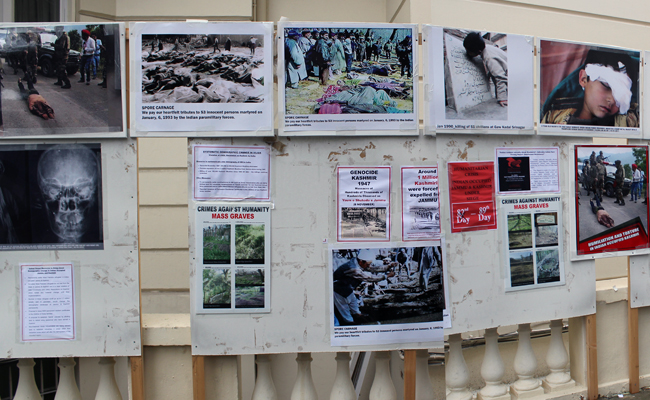Indian tactics to distract world attention from humanitarian crisis in IOK rebuffed: Nafees Zakaria
World community particularly members of civil society, media, and Parliamentarians have rebuffed the Indian claims of normality in Indian Occupied Kashmir (IOK). This was stated by High Commissioner Mohammad Nafees Zakaria while addressing at the Kashmir Solidarity Day which is observed every Friday at the High Commission in the aftermath of Indian Government’s unilateral illegal measures to change the status of the IOK.
Indian atrocities, mass killings, mass blindings, mass graves and other measures to systematically change the demography of IOK have been documented; the High Commissioner highlighted while hoping that justice to the victims would be delivered and perpetrators would be punished. Indian efforts to hide their crimes against humanity and the ongoing humanitarian crisis have been exposed by the reports filed by the human rights NGOs and international media, he added.
Mr Zakaria said Pakistan has rejected the “bifurcation” of IOK into two Union Territories as it is in complete violation of the UN Security Council Resolutions and Bilateral Agreements between India and Pakistan, especially the Simla Agreement.
The High Commissioner also updated the audience and media on current situation under Indian siege and the plight of the Kashmiris in IOK. He urged the attendees to keep the Kashmiri people in their thoughts and prayers and keep reminding the world about the ongoing humanitarian crisis in Kashmir.
As the continuous siege in IOK enters 89 th day, Kashmir Solidarity Day reminded the world of the plight of the Kashmiris suffering under draconian laws of India. A large number of Pakistani Community, friends of Pakistan from other communities and media representatives who offered Juma (Friday) Prayer were made aware of the plight of the oppressed Kashmiri people of IOK. They expressed their concern and prayed for the Kashmiris.
On the occasion, photos depicting Indian atrocities against defenceless Kashmiris were also displayed. The photos of the victims of Indian atrocities, as documented by various international institutions and human rights organisations, and Indian measures to change the demography, helped visitors understand the magnitude of the human rights abuses in IOK.
